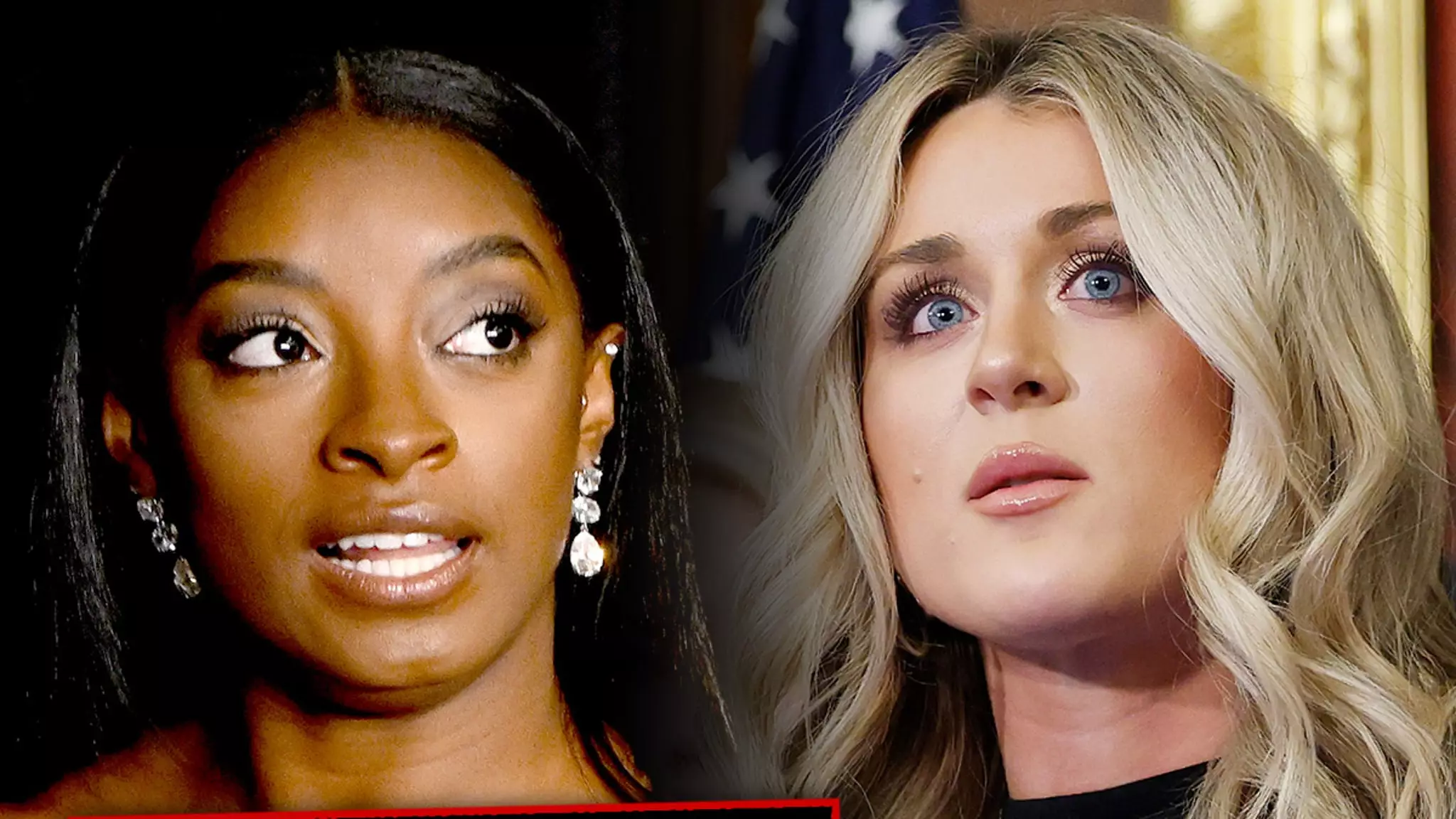The discourse surrounding trans athletes in women’s sports has ignited a firestorm of debate, often characterized by strong emotions and polarizing opinions. A recent exchange between Olympic champion Simone Biles and conservative activist Riley Gaines highlights the profound divides in this important conversation. It’s a clash of ideals that underscores the complexities of inclusion, fairness, and the evolving landscape of athletics, particularly concerning the participation of transgender individuals.
Biles, a seven-time Olympic gold medalist, is not only celebrated for her athletic prowess but also her advocacy for mental health and empowerment within sports. Her robust defense of inclusion came into sharp focus when she responded to Gaines’ comments about a trans high school athlete, making it clear that she stands firmly against what she perceives as divisive rhetoric. Biles described Gaines as “sick” for criticizing a moment of celebration surrounding the sporting achievements of a trans athlete, a sentiment that resonates not only with her beliefs but also with a broader movement towards inclusivity in sports.
Gaines’ Controversial Standpoint
On the other hand, Riley Gaines has positioned herself as a vocal opponent of trans participation in women’s sports, advocating for the sanctity of female-only competitions. Her tweet regarding the Minnesota State High School League’s decision to disable comments on a celebratory post about a trans athlete underscores her belief that allowing trans women to compete in female categories undermines opportunities for biological women. In her view, such inclusivity equates to a disservice to female athletes, starkly positioning her as a staunch defender of women’s rights to compete fairly.
Gaines’ argument suggests an unwillingness to evolve with the changing societal understanding of gender identity. Her insistence that “men don’t belong in women’s sports” resonates with a segment of the population that feels their athletic achievements are at risk in an era of increasing inclusivity. She invokes serious issues surrounding safety and fairness as she questions the very essence of competitive integrity in women’s sports.
The Personal Dimension of the Debate
The clash between these two powerful voices becomes even more heated as personal narratives creep into the discussion. Biles, who has shared her own traumatic experiences with Larry Nassar, emphasizes the respect and autonomy of women in sports. By labeling Gaines as a “sore loser,” she points to the underlying tensions that exist when individuals cannot accept changes in what has historically been a gender-segregated arena. Biles challenges Gaines to redirect her energy toward nurturing a culture of inclusivity rather than perpetuating contention.
Interestingly, Gaines countered Biles’ personal framing by referencing her abuse history, suggesting that Biles’ advocacy for trans inclusion in women’s sports contradicts her own experiences. This tactic attempts to question Biles’ motives and desires within the complex conversation but also raises the stakes in a deeply emotional debate. It illustrates how both individuals are not merely representing ideas but are also embodying personal histories that dictate their understanding of fairness, safety, and inclusion.
Navigating the Future of Sports
As these conversations unfold on social media — a platform that magnifies conflict and divides — it is critical for both advocates and opponents of trans inclusion in sports to engage thoughtfully. The underlying question remains: How do we balance fairness and inclusivity in a landscape where definitions of gender continue to evolve? While the debate might stir up passionate discourse, the solution requires empathy, grounded understanding, and an awareness of the multifaceted nature of identity in contemporary society.
Athletes like Biles embody the hope that sports can foster acceptance and celebrate differences, while figures like Gaines remind us of the fears and anxieties associated with altering long-held norms. As the dialogue continues to progress, it illuminates not only the current state of athletics but also the cultural dynamics at play in our ever-evolving conversation around gender, identity, and belonging. How we manage these discussions will shape the future of competitive sports for generations to come, driving home the importance of respect and understanding on both sides of the divide.

